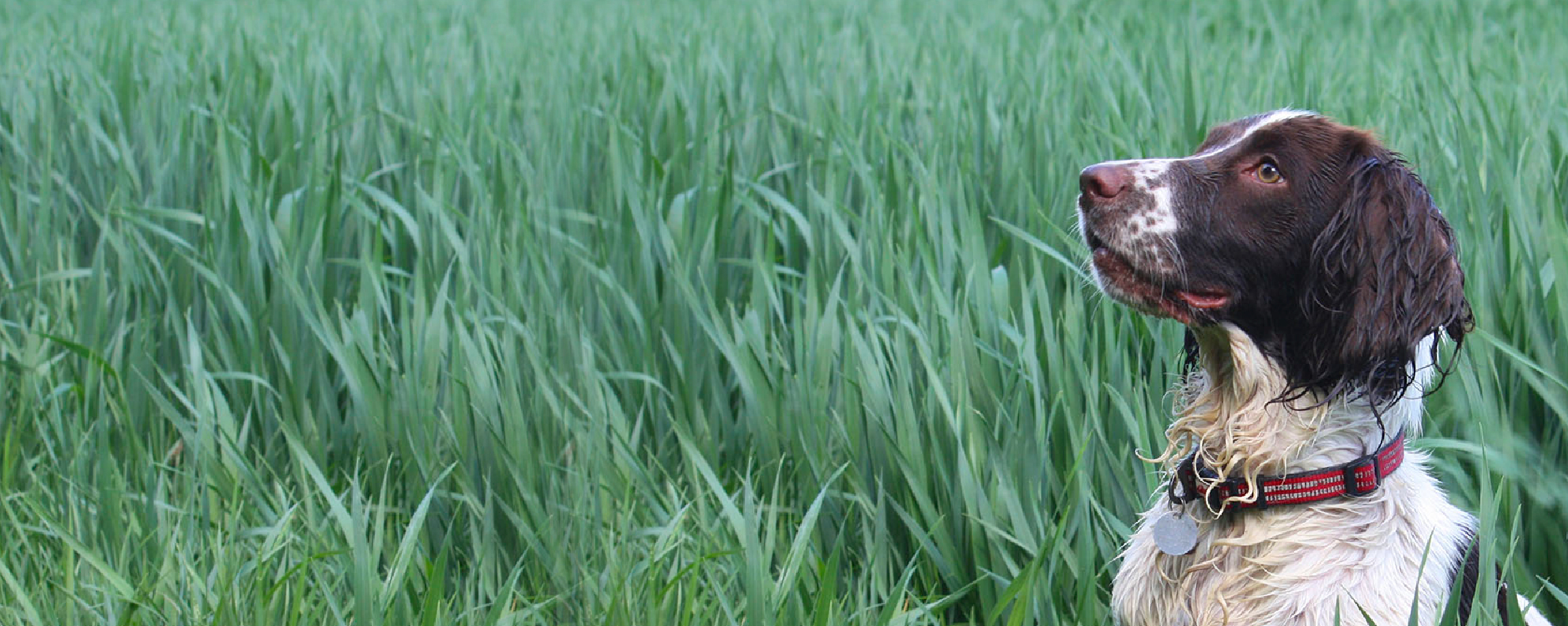Protein

Protein is the dogs most important requirement, and the correct amount is crucial as it provides all the essential amino acids needed for muscle growth and repair, organ maintenance, bone growth and maintenance, immune system strength and so on.
Unfortunately this list is pretty much endless, it can range from muscle mass loss through to reduced ability to fend of illnesses, increase in ageing and increase in age related disabilities such as arthritis, reduced hearing and sight. Muscle mass loss can still occur even if a dog appears overweight as the build up of body fat is caused by calories and carbohydrates which are not used as energy, should the diet have insufficient protein the actual muscle tissue will still decrease. (see weight control)
The first part is an impossible question to answer, as every dog is completely different in both size and activity, a working dog that that is extremely active will obviously need more whereas a dog that is very inactive and spends most of its time in a house will need less. Protein is processed in the liver and any waste is removed by the kidneys, good quality protein will produce very little waste and so the kidneys will not be working overtime, however poor quality and incomplete proteins are much more difficult for the dog to process and as a result the kidneys have to work overtime which inevitably will lead to kidney related illnesses becoming a real risk.
There has been quite a number of studies over the past several decades regarding protein levels in pet food but unfortunately the majority of the older studies were not only based on poor quality plant proteins but also conducted on rats which have different nutritional needs and any such findings should be considered inaccurate. More recent studies such as the report F.E.D.I.A.F. dated July 2012 only provides minimums and again can be considered inaccurate as several of the tables contained within state “Crude Protein” or just “Protein” as by now you should know that all proteins are not created equal.
If a dog is fed too much protein its body simply cannot produce the enzyme (Pepsin) and stomach acid (Hydrochloric) needed in the correct quantity that quickly to break down the protein down and as a result the food will pass through pretty much undigested.
Unfortunately there is very little in the way of hard fact as to how much quality protein is indeed required as much of the past research has been conducted by the major pet food manufactures who are the only ones in a financial position to carry out such research, their findings can be construed as being bias towards cheaper fillers and non meat protein sources.
Should a food contain unnaturally high levels of protein there is every possibility the dogs digestive system will be unable to cope which will result in loose stools or even diarrhoea over time this will also result in weight loss and possibly other health issues should the diet not be corrected.
Even giving high protein treats will temporarily affect the digestion. So, should your dog be lucky enough to receive quality treats it is only right that the food intake for that day should be reduced to compensate. For this reason, Millies has concentrated on a delivery of quality protein in a realistic proportion with a specific amount of carbohydrates which most dogs can quite happily convert to energy and utilize, but for some any excess of carbohydrate my lead to undesirable body fat.
The crude protein level in Millies Wolfheart currently is between 19% and 40% this simply means that for every 1 kg of dry food there is between 190 and 400 grams is quality protein (depending on which recipe).
High meat and quality protein’s do not lead to behavioural problems- it is an outdated myth.
Quality meat protein is vital for proper functionality being the most important nutrient in the diet from proper brain function to overall development.
Generally dogs on higher meat protein diet are calmer as they have a constant supply of nutrients unlike inadequate low quality protein diet (grains, gluten and vegetable proteins)
